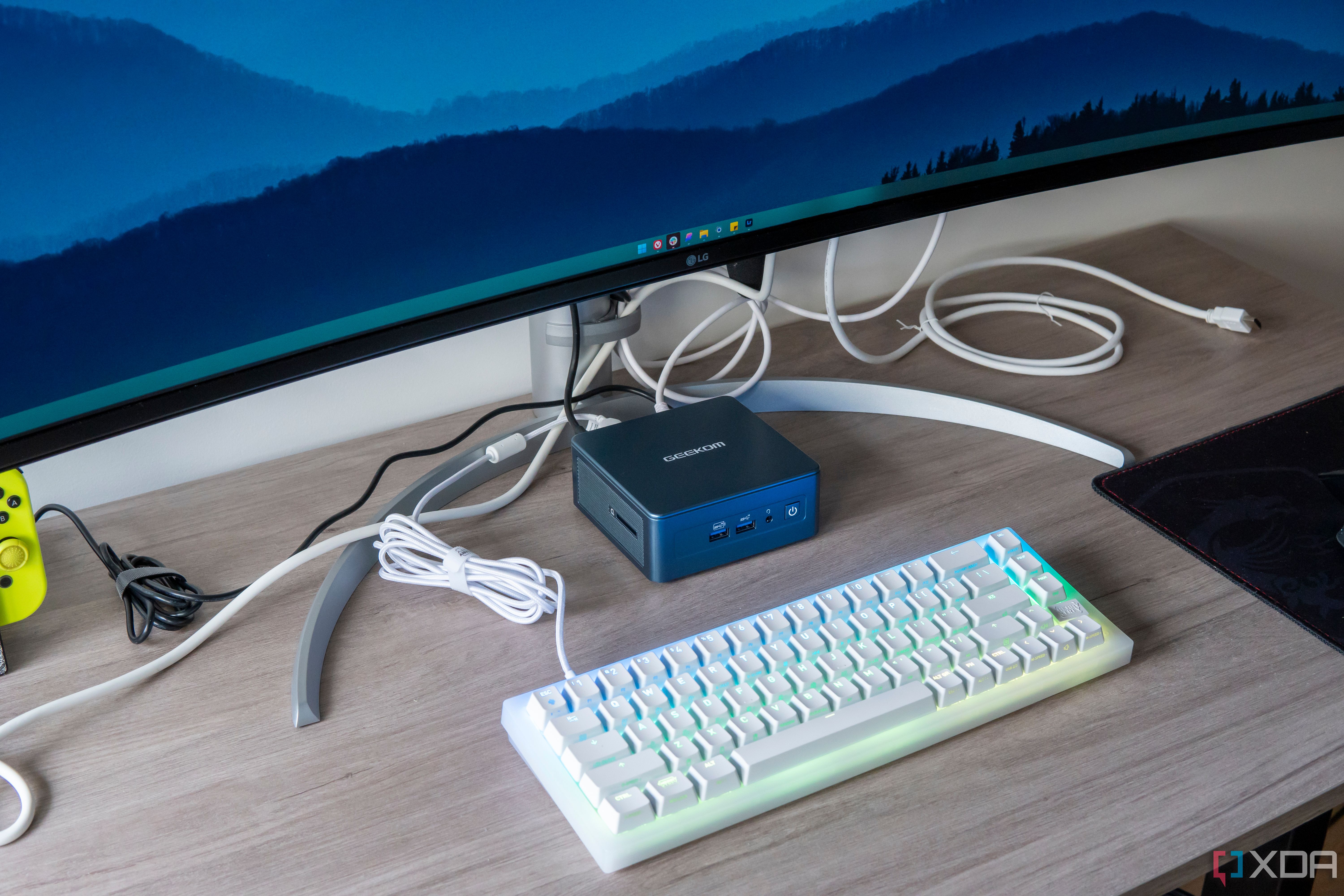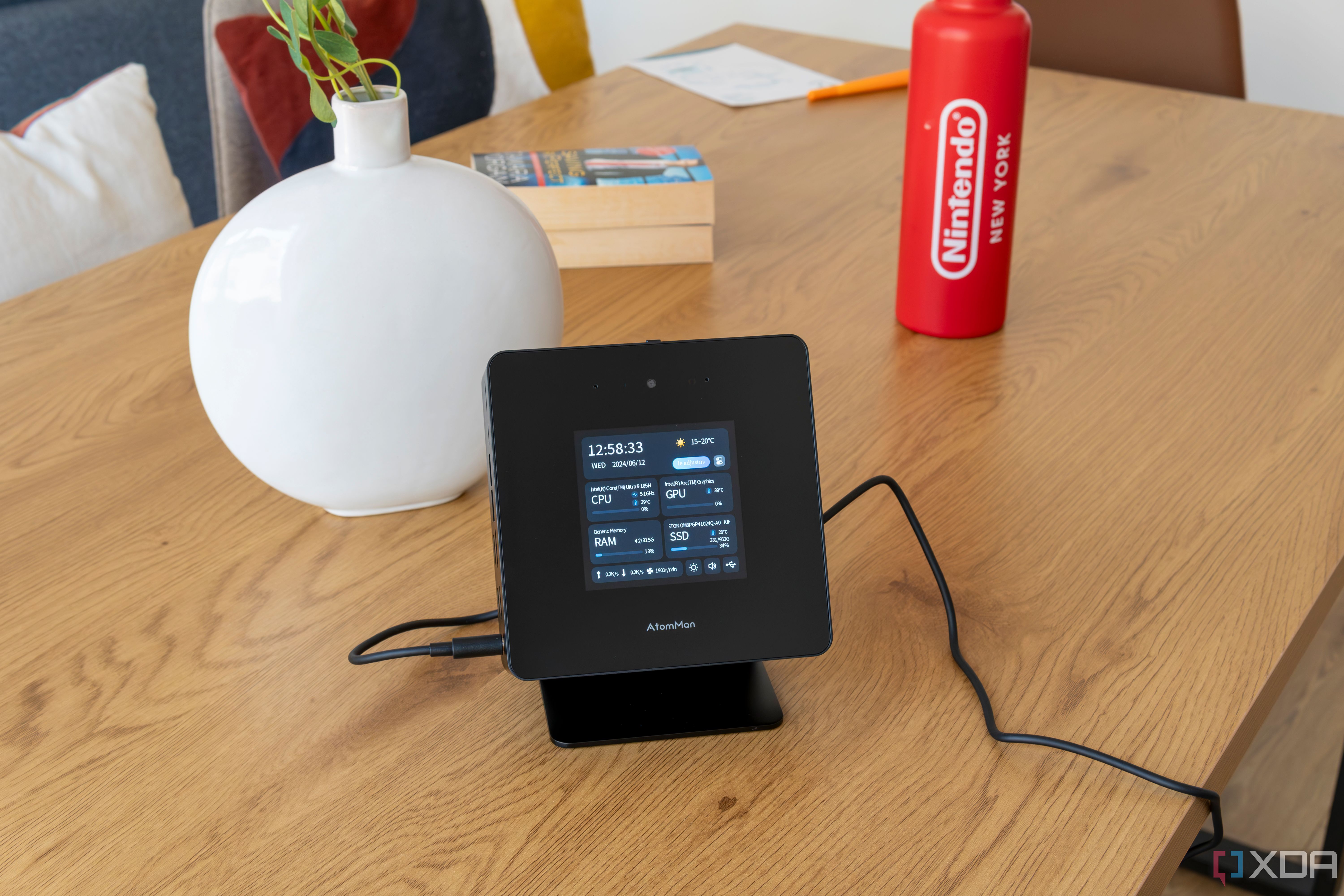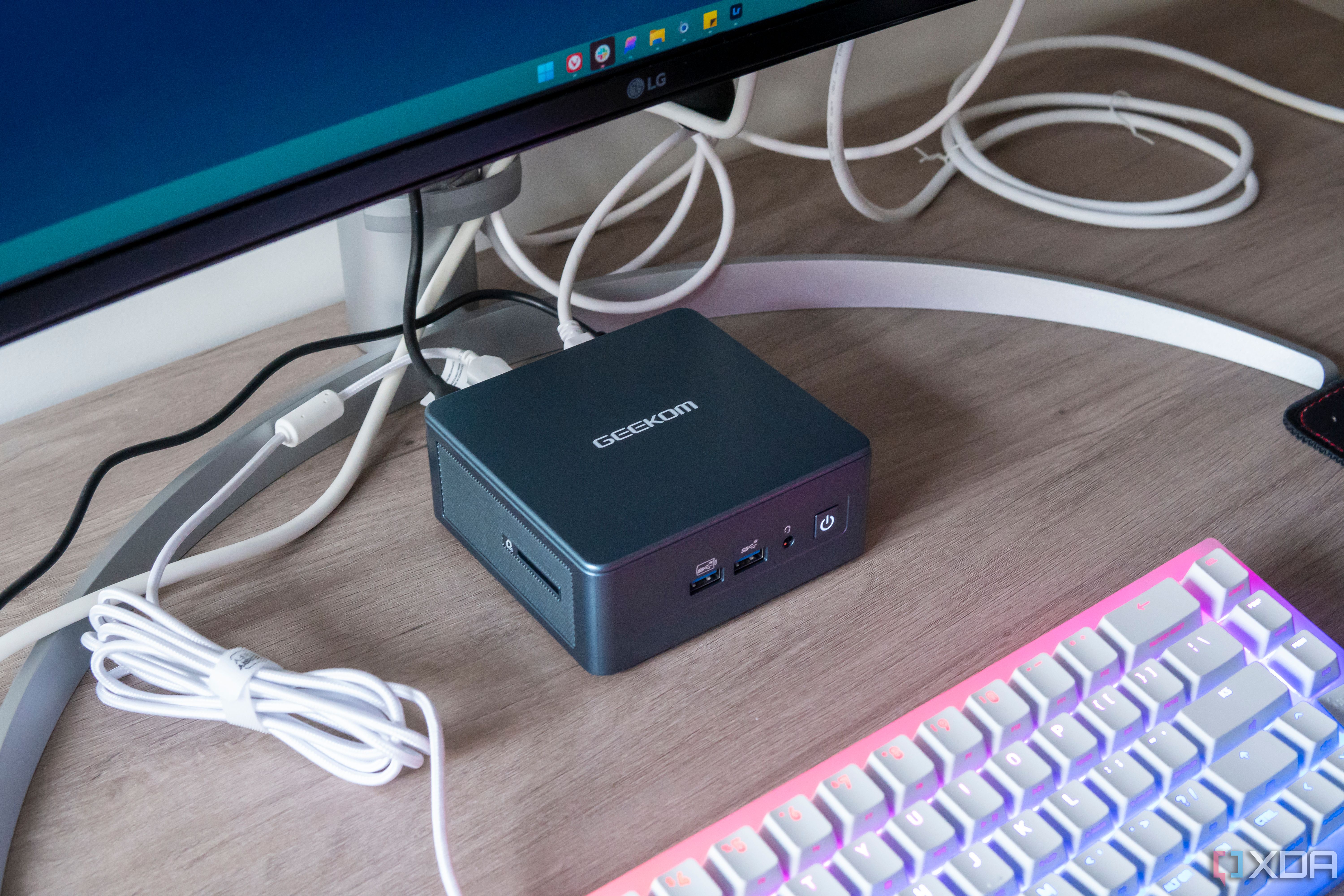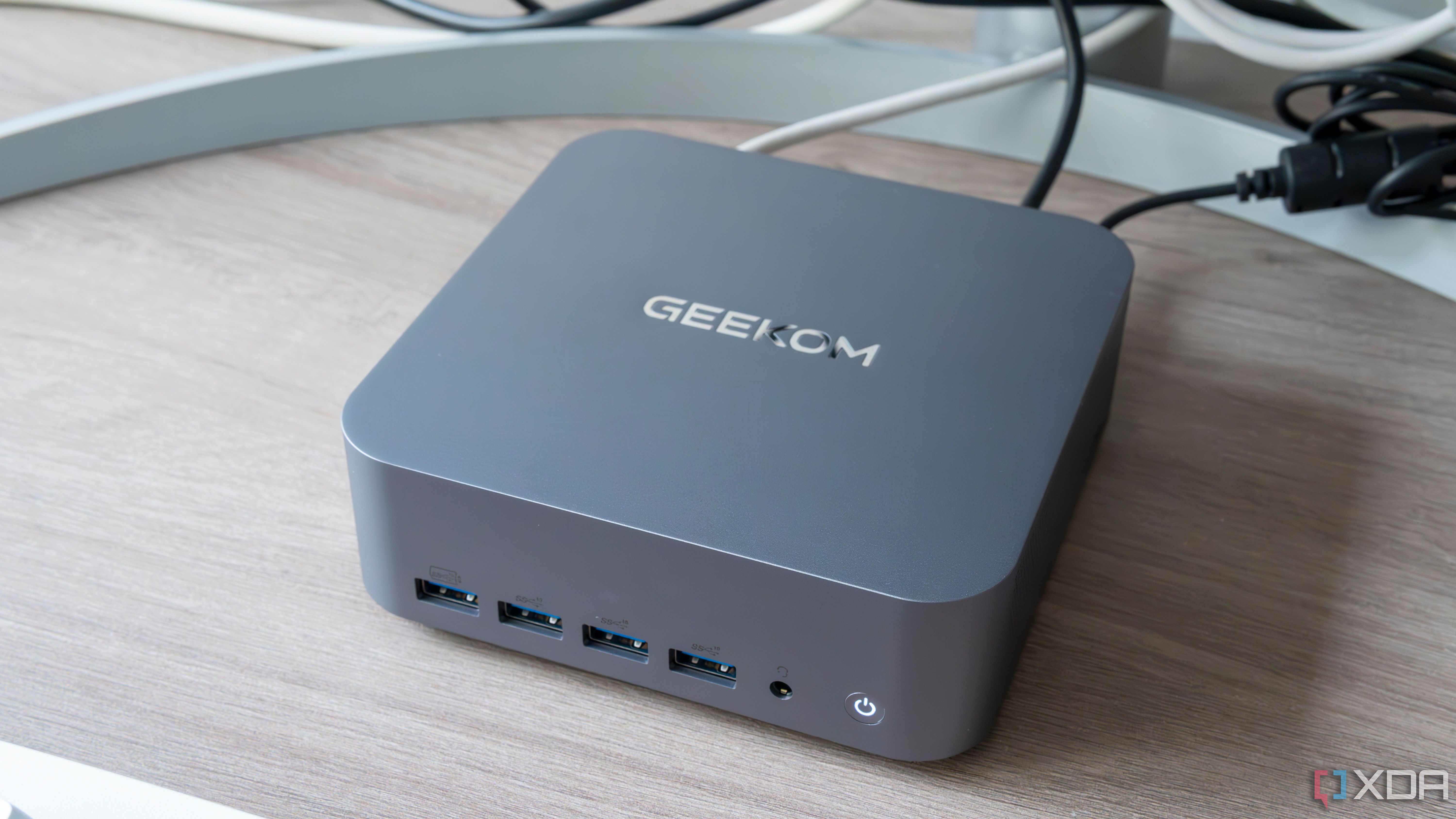Building out a homelab is a fun — if somewhat time-consuming — process, but you’ll probably need some new hardware to get started. Unless you already have a PC around you want to use for it, your best bet for starting a home lab is buying a mini PC. These computers are tiny, power-efficient, and more than powerful enough for most of the use cases you’ll have with a device like this, so why not embrace it?
However, if you’re buying a mini PC specifically for a homelab, there are some mistakes you’ll want to avoid in your decision-making. Here are a few common things you may misjudge when picking the centerpiece of your home lab, and why it’s important to avoid them.

Related
I started using a mini PC and I never want to go back
These tiny machines are perfect for my dream desk setup, and I never want a desktop tower if I can have a mini PC.
4
Overspending on specs
Some mini PCs are powerful but you don’t need all that
One of the big benefits of mini PCs is that they’re generally more constrained in terms of power usage compared to a typical desktop PC, but that doesn’t mean it’s not possible for you to overshoot the specifications anyway. A lot of mini PCs, such as the Geekom GT1 Mega, come with up to an Intel Core i9 processor or an AMD Ryzen 9. These are very powerful processors that will give your home lab a ton of performance to work with, no doubt, but it’s also possible you’re buying way more than you need.
A relatively mid-range unit with a modern Core i5 processor can already handle VMs and containers just fine. It’s only if you start setting up a lot of services and VMs you want to run at the same time that the extra performance is really necessary. Especially if you’re a first-time builder just learning the ropes, it’s safe to go for a slightly less powerful model, and thankfully, a lot of mini PC makers sell many models with older hardware, so you can probably save a good bit of money and still get all the power you need.

Related
Minisforum AtomMan X7 Ti review: My new favorite mini PC
It has a screen, a webcam, and fast performance
3
Limiting your upgrade options
It’s inevitable to some extent, but there are options
One problem with most mini PCs is going to be the lack of upgrade options available to you, but you can do your best to avoid the limitations you can. The one thing you have to compromise on is the processor, as it’s extremely unlikely you can find a proper mini PC with a swappable desktop CPU. However, a lot of mini PCs have upgradeable RAM and storage.
As an example, the Asus NUC 14 Pro I reviewed last year has two SODIMM slots so you can upgrade the RAM relatively easily later down the line, so you don’t have to spend as much upfront if you don’t need all that right now. It also has two SSD slots and even a 2.5-inch drive bay for a SATA drive, so you can expand storage fairly easily.
Conversely, a PC like the Khadas Mind has no upgradeable RAM, so you’re stuck with what you get out of the box. You may want to give yourself some room to upgrade later, so as much as I love the Mind for running Windows, it’s not a great choice for a home lab.

Related
Asus NUC 14 Pro review: A compact and powerful PC that’s easy to upgrade
A toolless design helps this tiny computer stand out
2
Don’t buy them to use as a NAS
Not a ton of storage
If you plan to use your home lab as a NAS to back up your data, a mini PC may not be the best way to go because these small devices aren’t going to have a ton of storage. Of course, there are a lot of devices out there, but in many cases, we’re looking at PCs with one, maybe two M.2 slots for storage, which isn’t ideal for massive storage solutions.
Some mini PCs do have a few more storage options, like the aforementioned Asus NUC 14 Pro with two SSD slots and one HDD drive bay, which is similar to the Geekom Mini IT13. Overall, though, you might want to look towards larger units like a proper desktop PC that can take on more drives if you need a large storage solution. That’s especially true if you want to have redundancy in case of a drive failure, which you should if your data is important to you.

Related
Geekom Mini IT13 review: A tiny PC for all your work needs
Geekom specializes in making mini PCs, and the MIni IT13 offers plenty of performance and ports for its tiny size.
1
Overlooking network connectivity
A home lab with poor connections is useless
Arguably the most important aspect of a home lab is being able to connect to it reliably, and in some cases, you may even want some extra networking capabilities. The first thing you need to keep in mind is that Realtek network cards often don’t play nice with Linux, so if you’re installing a Linux-based platform like Proxmox can result in some connectivity woes that you definitely want to avoid.
But also, it’s important to note that you want at the very least one Ethernet port, and in some cases, having two might be helpful. Most mini PCs do have Ethernet, but a device like the Khadas Mind actually doesn’t have one, so you’ll almost certainly want to avoid it. And if you plan on virtualizing a router or firewall for your network, a second Ethernet port, and those are a bit rarer. You’ll be looking at models like the Geekom GT1 Mega for that kind of use case, so be sure to know what you’re getting into.
9:01

Related
Geekom GT1 Mega review: A very capable mini PC that lacks a wow factor
Geekom’s latest mini PC looks a lot like its previous models
Get the right PC for the job
Whether you end up getting a mini PC or a larger desktop, choosing the right hardware for your needs is important. You don’t want to overspend, but you also don’t want to be left with hardware that can’t live up to your needs. As with anything, finding the sweet spot for your needs can be a challenge, but it’s worth the effort to get it just right. Keep these things in mind and you’ll already be on the right track.











